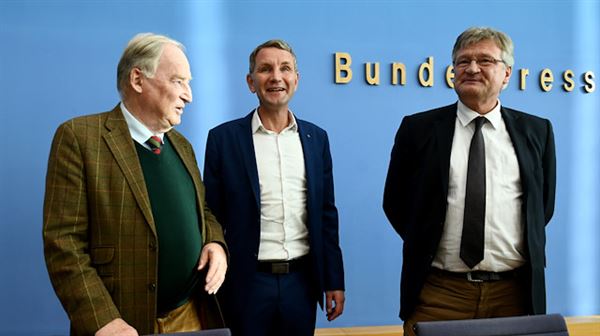The far-right AfD’s surge in state elections in the eastern German state of Thuringia on Sunday is making it harder for mainstream center-right
The far-right AfD’s surge in state elections in the eastern German state of Thuringia on Sunday is making it harder for mainstream center-right and left parties to form a coalition government.
The anti-immigrant, Islamophobic Alternative for Germany (AfD) came in second in the ex-communist state, more than doubling its vote share to 23.4%, according to official results announced on Monday.
The socialist Left Party (Die Linke) boosted its vote share from 28.2% to 31%, but failed to win enough seats in the state parliament to govern alone.
Chancellor Angela Merkel’s center-right Christian Democratic Union (CDU) managed to win 21.8%, some 12 points down from the last election, historically the worst result for the party in Thuringia.
The center-left Social Democratic Party (SPD) plunged to a record low of 8.2%, making coalition options more complicated.
-CDU faces tough choices
Merkel’s Christian Democrats, who so far ruled out forming a coalition government with far-left or far-right parties, on Monday signaled a readiness to talk with the Left Party.
Mike Mohring, the CDU’s lead candidate, told reporters that he will meet with the Left Party’s top candidate Bodo Ramelow, but did not say whether the CDU has changed its longstanding position.
“I really don’t know at the moment what Mr. Ramelow would tell us. I will go to the meeting with an open mind and listen to him,” he said.
Meanwhile, CDU lawmaker Michael Heym urged his party not to rule out coalition talks with the far-right AfD.
“One would not strengthen democracy by alienating a quarter of the electorate,” he told local media.
